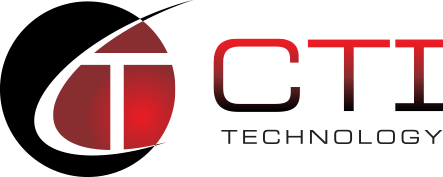What Chicago Law Firms Need To Know: FTC Safeguards Rule Effective June 9, 2023
As a Chicago law firm, it is essential for you to be aware of the upcoming changes in regulations related to the Federal Trade Commission’s (FTC) Safeguards Rule. The rule, which comes into effect on June 9, 2023, expands the definition of “financial institution” and significantly impacts many businesses’ compliance requirements for protecting customer information. Preparing to implement these new technologies is crucial to ensure that your law firm remains compliant and continues to meet the demands of your clients.
The Safeguards Rule requires non-banking financial institutions, such as mortgage brokers, motor vehicle dealers, and payday lenders, to develop, implement, and maintain a comprehensive information security program. This rule aims to preserve consumers’ privacy and personal information, an important component of the Gramm-Leach-Bliley Act (GLBA). Familiarizing yourself with the updates, deadlines, and requirements in the Final Rule is essential in ensuring your law firm’s adaptability and success in this regulatory landscape.
To stay ahead of these changes, your law firm should assess your current information security practices and adjust them as necessary to align with the revised FTC Safeguards Rule. Establishing clear roles, responsibilities, and levels of decision-making authority, as well as improving communication and information sharing inside and outside your firm, will contribute to the efficiency and effectiveness of your response plan, as required by Section 314.4 (h) of the Safeguards Rule. By taking these steps now, you will be better equipped to navigate the complex legal environment and meet the evolving demands of your clients.
Understanding the FTC Safeguards Rule
Gramm-Leach-Bliley Act
The FTC Safeguards Rule is rooted in the Gramm-Leach-Bliley Act (GLBA), a law enacted in 1999 that requires financial institutions to take specific steps to protect the confidentiality and security of customer data. As a Chicago law firm, you should be aware of this act and its implications on your business since it may affect the handling of client information and data protection practices.
Standards for Safeguarding Customer Information
Under the GLBA, the FTC established the Standards for Safeguarding Customer Information, often called the Safeguards Rule. This rule mandates that covered financial institutions within the FTC’s jurisdiction implement specific security measures to keep customer information secure. It’s essential to understand that the definition of “financial institution” in this context may be broader than you think, potentially impacting aspects of your law practice.
Here’s a brief overview of the critical elements required by the original Safeguards Rule:
- Develop a comprehensive, written information security program
- Identify foreseeable internal and external risks to client data
- Design appropriate safeguards to manage and counter potential risks
- Continually monitor and adjust the security program as needed
- Implement service provider oversight to ensure data protection
Revised Rule
In 2021, the FTC amended the Safeguards Rule to ensure it remains current with evolving technology and industry standards. Most of these amendments are set to go into effect on June 9, 2023. As a Chicago law firm, you must be prepared to comply with these changes.
The revised rule includes the following updates:
- More specific guidance for businesses on assessing and addressing risks
- More explicit requirements for encryption, multi-factor authentication, and access controls
- A mandate for continuous vulnerability testing and ongoing employee training
- Enhanced oversight of service providers that handle customer information
As you prepare for the upcoming changes, you must audit your current information security program and ensure you are ready to meet the updated requirements. Be proactive in safeguarding your clients’ information and maintaining compliance with the FTC Safeguards Rule.
Fundamental Changes and Requirements Under the New Rule
Risk Assessment Process
Under the new FTC Safeguards Rule, you need to conduct a thorough risk assessment process. This includes identifying internal and external risks to your client’s data security and implementing reasonable policies to address these risks. Regular assessments and updates should encompass all aspects of your law firm’s operations.
Information Security Program
You must establish and maintain an information security program tailored to your law firm’s size and complexity. This program should comprehensively cover administrative, technical, and physical safeguards to protect client information from unauthorized access and data breaches.
Multi-Factor Authentication
Implementing multi-factor authentication for accessing your client’s nonpublic personal information is essential. You must require your employees and third-party service providers to use multiple factors for authentication when accessing sensitive client information. This helps to reduce unauthorized access and strengthen your information security program.
Encryption
You must use encryption to protect your client’s data during transmission and storage. This includes encrypting data stored on servers, hard drives, and other storage devices and data transmitted over public networks, email, and wireless communication systems.
Incident Response Plan
Developing an incident response plan is vital in managing and mitigating security events affecting your client’s data. The plan should outline clear roles, responsibilities, and decision-making authority to promptly and effectively respond to security incidents. The Incident Response Plan should also define communication and information sharing protocols within your company and with external entities. Learn more from the FTC guideline on what your response plan must cover.
Secure Disposal
Your law firm must establish and follow procedures for the secure disposal of client information when no longer needed. This includes adopting practices to permanently destroy physical records and securely delete electronic records containing sensitive client information.
Employee Training
Regular employee training ensures your staff knows about your information security program policies and procedures. Your training program should emphasize the importance of client data privacy, detection of potential security threats, and steps to follow in case of a security event.
Partner and Service Provider Oversight
You must also oversee partners and service providers who access, process or store your client’s nonpublic personal information. Establishing stringent vetting processes and including security requirements in your contracts with third parties will help ensure they adhere to your information security program.
By adhering to these critical requirements under the new FTC Safeguards Rule, you can help ensure the security of your client’s data and maintain compliance within your Chicago law firm before the rule comes into effect on June 9, 2023.
Applicability and Scope of the Rule
Covered Companies
The FTC Safeguards Rule primarily applies to financial institutions, which according to the Gramm-Leach-Bliley Act (GLBA), include businesses significantly engaged in providing financial products or services. As a Chicago law firm, you might not think the rule applies to your practices directly. However, you could be considered a covered company under the FTC Safeguards Rule if your firm is involved in activities such as providing real estate settlement services, tax preparation, or other financial consulting services.
Nonpublic Personal Information
The Safeguards Rule focuses explicitly on protecting nonpublic personal information (NPI), which refers to any sensitive financial data that a financial institution obtains about a customer in connection with providing financial products or services. This information includes social security numbers, account numbers, personal identification numbers (PINs), and any other information that is not publicly available. As a Chicago law firm, you are responsible for ensuring proper measures are taken to secure any NPI you may handle during your work.
Exceptions
It’s important to note that certain exceptions to the FTC Safeguards Rule exist, which you should be aware of. For example, the rule does not apply to businesses that provide financial products or services only as incidental to their primary activity or businesses not handling NPI. Additionally, specific types of companies, like auto dealers operating under particular circumstances, are exempt from complying with the Privacy Rule component of the GLBA. Review FTC’s guidelines carefully to determine if any exceptions apply to your business.
As you prepare for the FTC Safeguards Rule coming into effect on June 9, 2023, ensure that your Chicago law firm is well-informed about the applicability and scope of the regulation. Familiarize yourself with the covered companies, nonpublic personal information protections, and any relevant exceptions to guarantee that your firm complies with the Safeguards Rule.
Compliance Deadlines and Implementation
June 9, 2023, Deadline
The FTC has extended the compliance deadline for specific provisions of the updated Safeguards Rule to June 9, 2023. As a Chicago law firm, you must be aware of this new deadline and take the necessary steps to ensure your firm is compliant. Compliance with this deadline requires your firm to develop, implement, and maintain an information security program that adheres to the Safeguards Rule’s administrative, technical, and physical safeguard requirements.
Monitoring and Testing
Under the revised Safeguards Rule, your firm is expected to:
- Regularly test and monitor the effectiveness of critical controls, systems, and procedures related to your information security program.
- Assess the risks that could impair customer information’s security, confidentiality, or integrity.
- Adjust your information security program based on the results of regular testing and monitoring and changes in technology or the threat environment.
While specific provisions of the Safeguards Rule come into effect on June 9, 2023, it is essential to start preparing now to achieve compliance. Consider the following steps:
- Review your firm’s current information security program: Assess its adequacy and identify areas needing improvement under the revised Safeguards Rule.
- Develop or update your firm’s risk assessment process: Ensure it adequately addresses the threats and vulnerabilities specific to your firm and the types of information you process.
- Design and implement any necessary improvements: Work towards bringing your firm’s information security program in line with the revised Safeguards Rule before the June 9, 2023 deadline.
Remember, the earlier you begin preparing your Chicago law firm to implement the updated Safeguards Rule, the more successful you will achieve compliance by the June 9, 2023 deadline.
Impact on Chicago Law Firms
Managing Compliance
As the FTC Safeguards Rule comes into effect on June 9, 2023, Chicago law firms must be prepared for the changes it brings. To manage compliance effectively, you should:
- Familiarize yourself with the specific requirements of the rule and learn how it applies to your firm.
- Review and update your policies and procedures to align with the new regulations.
- Train your staff to ensure they understand the rule’s implications and can adhere to the updated policies.
Legal Advice
Given the complexity of the FTC Safeguards Rule, many law firms may seek legal advice to interpret and implement compliance measures correctly. In this context, it might be beneficial for your firm to:
- Consult with data security and privacy law experts who can guide compliance strategies and best practices.
- Consider offering related services to your clients, such as helping them navigate the complexities of the rule and ensuring their businesses are compliant.
Information Security Personnel
To meet the requirements of the FTC Safeguards Rule, your firm may need to invest in hiring or training information security personnel. These experts can help:
- Assess your firm’s current security measures and identify potential areas of improvement.
- Implement new systems and practices to protect better client data, such as encryption technologies and access controls.
- Monitor and maintain these measures continuously, ensuring your firm remains compliant as the regulatory landscape evolves.
Preparing for the FTC Safeguards Rule requires Chicago law firms to prioritize compliance, seek legal advice when needed, and invest in information security personnel to protect sensitive client information.
How CTI Technology Can Assist Chicago Law Firms With Complying With The FTC Safeguard Rule
With the FTC Safeguard Rule coming into effect on June 9, 2023, your Chicago law firm must take the necessary steps to comply with the new regulation. One way to achieve this is by partnering with a reliable IT service provider, such as CTI Technology.
Digital transformation planning and implementation
Your firm needs to embrace new technologies by modernizing its IT infrastructure. CTI Technology can assist you in creating a tailored digital transformation plan that aligns with the FTC Safeguard Rule requirements. This plan helps you streamline your operations, ensuring data security and improving efficiency.
IT consulting services
Navigating the complexities of the FTC Safeguard Rule can be daunting. That’s why it’s vital to have knowledgeable IT consulting services to guide you in making informed decisions about your law firm’s IT system. CTI Technology’s team of experts can help you understand the risks and implement suitable safeguards in your practice.
Cybersecurity services
Protecting your clients’ sensitive information and maintaining strict compliance with the Safeguard Rule requires robust cybersecurity measures. CTI Technology offers a range of cybersecurity services, including:
- Threat assessment and management
- Security audits
- Data encryption
- Secure backups
These services help your law firm build a strong defense against cyber threats, ensuring compliance with the FTC Safeguard Rule.
In conclusion, CTI Technology’s comprehensive suite of IT services can be a valuable asset for your Chicago law firm in navigating and complying with the upcoming FTC Safeguard Rule. Don’t wait until the last minute to get prepared – start now to ensure your firm is ready for June 9, 2023.
Why Is CTI Technology The Best Choice For IT Services In The Chicagoland Region?























